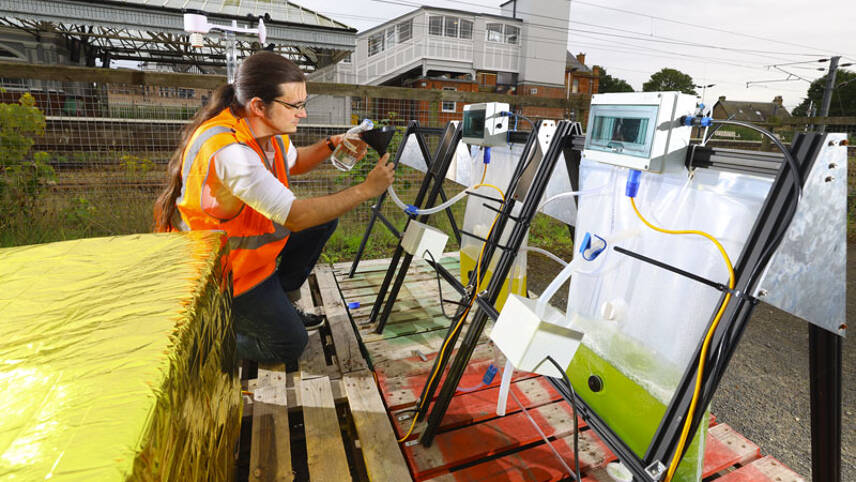Register for free and continue reading
Join our growing army of changemakers and get unlimited access to our premium content

The train operator is working with science and technology startup Algacraft to assess the feasibility of scaling the use of microalgae bioreactors to capture carbon across its network of stations and tracks.
A five-month-long set of feasibility studies has already been completed, proving that microalgae can grow outdoors without temperature controls and can effectively capture carbon from the air on a small scale.
Now, LNER and Algacraft will collaborate to assess whether installing the bioreactors on disused land adjacent to the railway at Berwick-upon-Tweed, Northumberland, will be possible.
Each bioreactor occupies approximately the same amount of land as two parking spaces. Algacraft claims that its technology could be up to 400 times more efficient than tree planting in terms of carbon capture benefits.
LNER is undertaking the trials as part of its accelerator programme, FutureLabs. Another green innovation firm to have received support through this scheme is Automendi, which is pioneering 3D printing with recycled plastics as a feedstock.
LNER’s chief digital and innovation officer Danny Gonzalez said: “The LNER FutureLabs programme has brought forward brilliant innovations and this project with Algacraft is no exception. We strongly believe that technology holds the key to discovering novel ways to reduce our impact on the planet, and the early success of this first trial phase shows real promise.
“One of the key pillars of LNER’s wider innovation strategy is to take on and trial new projects in the early stages, driving them forward and quickly strengthening our knowledge of how it can operate within a rail industry setting. Given we have reached this first milestone, we look forward to developing our research further with Algacraft and sharing our learnings more widely with the rail sector and beyond.”
LNER is notably working towards a 2045 net-zero target. It has set an interim ambition to ensure that at least two of its stations are carbon-neutral in operation, which it is on track to deliver.
More broadly, LNER had been targeting a 21% reduction in operational emissions between 2021 and 2025. It has already exceeded this goal with a 50% reduction recorded to date.
Related news: Government-commissioned sustainable rail blueprint unveiled for Britain


Please login or Register to leave a comment.